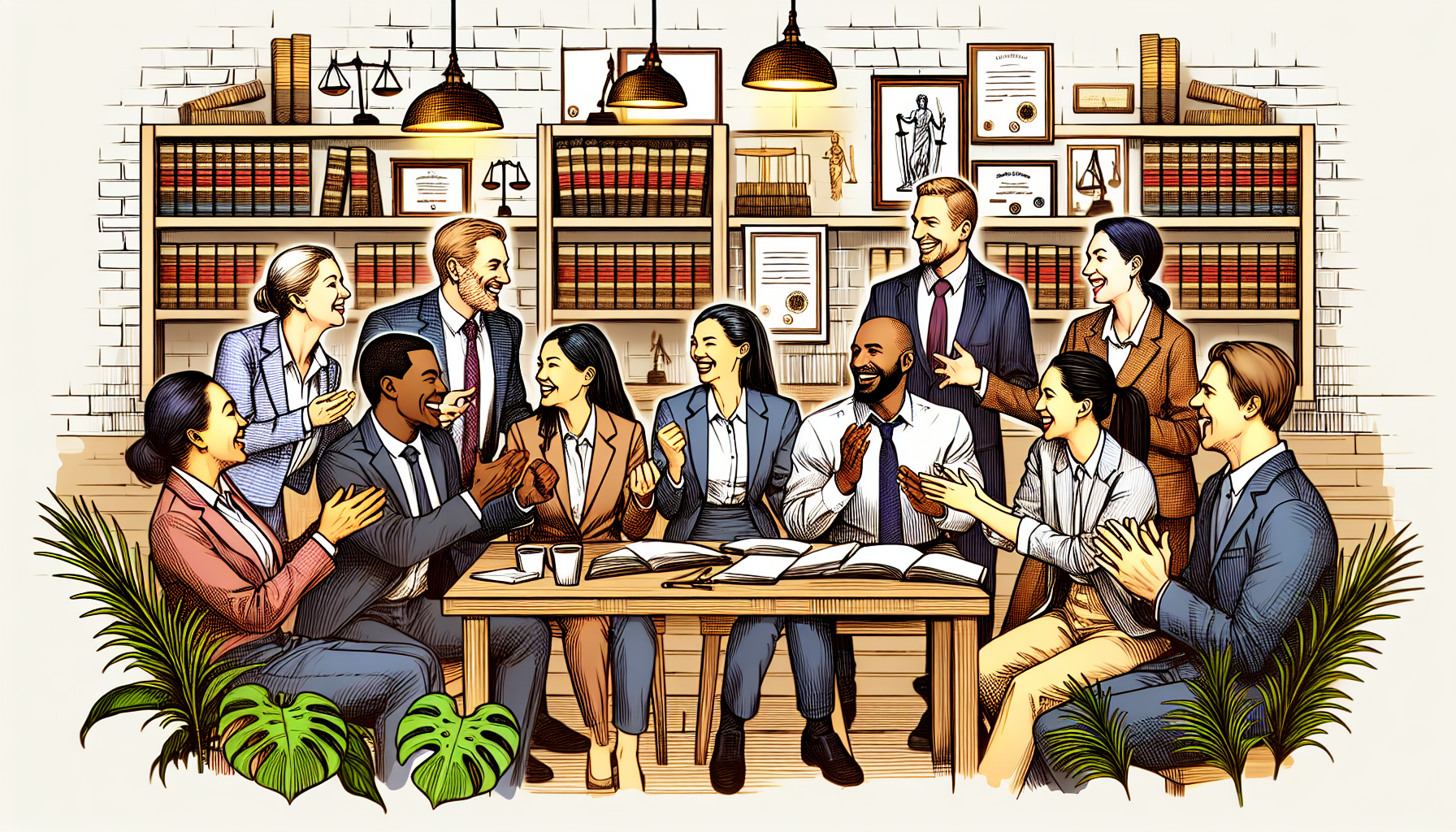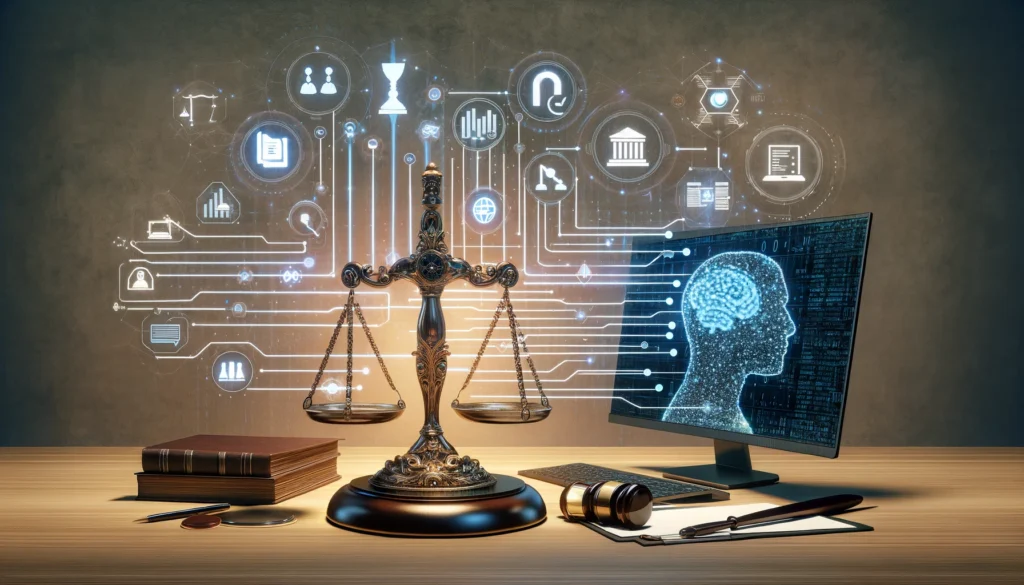
The New Age of Paralegal Efficiency: Embracing AI Tools
The legal industry is undergoing a paradigm shift with the integration of Artificial Intelligence (AI) tools, facilitating unprecedented levels of efficiency and accuracy. Paralegals, often burdened with labor-intensive tasks, are now leveraging AI to streamline their workflow, particularly in drafting and managing documentation. The introduction of AI tools, such as ChatGPT, has redefined paralegal duties, reducing the manual effort while enhancing productivity.
Efficiency is the new mantra, and AI is at its forefront. By automating repetitive tasks and assisting in complex ones, AI frees up paralegals to focus on more strategic planning and client interaction. One area where this shift is most apparent is in Intellectual Property (IP) law.
Intellectual Property Assignment Agreements: An Overview
Intellectual Property Assignment Agreements are pivotal in the transfer of rights, whether it’s patents, trademarks, copyrights, or trade secrets. These agreements ensure that all legal aspects of the ownership transition are comprehensively addressed. The complexity of drafting such legally binding documents requires acute attention to detail and thorough understanding of IP law.
Ensuring the accuracy of these agreements typically consumes significant paralegal resources. Traditional processes involve meticulous cross-referencing of legal statutes, which can be time-consuming and error-prone. However, tools like ChatGPT are transforming how these documents are crafted and reviewed, offering much-needed assistance in this intricate domain.
Why ChatGPT? The AI Advantage in Legal Documentation
ChatGPT stands out as an invaluable tool in legal documentation for several reasons. Firstly, its capability to generate coherent and legally sound text makes it an excellent assistant in drafting complex documents. AI can analyze vast amounts of legal data swiftly, providing a level of precision that manual drafting might miss.
Another significant advantage is the reduction of time spent on routine documentation. ChatGPT can quickly generate initial drafts, create standard clauses, and customize agreements based on specified parameters. This efficiency not only saves time but also enhances the consistency and quality of the legal documents produced.
Moreover, ChatGPT aids in minimizing errors through its ability to cross-reference and validate information against existing laws and precedents. By implementing AI in their workflow, legal professionals can ensure that their documentation not only meets but exceeds compliance standards.
Crafting Precise Prompts: The Art of Asking Smart Questions
To harness the full potential of ChatGPT, it’s crucial to craft precise prompts. The accuracy and relevance of AI-generated content largely depend on the input provided.
Understanding Context and Keywords
Context is king. Paralegals must provide context-rich prompts, incorporating essential details such as the type of IP involved, the jurisdiction, and specific clauses required. Keywords play a vital role in guiding the AI to produce relevant and accurate drafts. For instance, a prompt like, “Draft an intellectual property assignment agreement for transferring copyright ownership under U.S. law, including indemnity clauses,” is precise and context-packed.
Leveraging Legal Jargon
Incorporating legal jargon is another critical aspect. The AI better understands the requirements when legal terminologies are used appropriately. For example, using terms like “hereinafter referred to as,” “warrant and represent,” or “indemnify and hold harmless” ensures that the generated output aligns with legal standards and expectations.
Streamlining Drafts: Using ChatGPT for Initial Drafts and Revisions
Leveraging ChatGPT for drafting and revising legal documents can profoundly streamline the workflow. Here’s how AI can be optimally used:
Generating Standard Clauses
Rather than drafting from scratch, paralegals can generate standard clauses using AI. Prompts such as “Generate a non-disclosure agreement clause” can save hours of laborious work. These AI-generated clauses can then be utilized across various documents, ensuring consistency and comprehensive coverage of legal requirements.
Tailoring Agreements to Specific Scenarios
Beyond standard clauses, AI excels in customization. With detailed prompts like, “Draft an IP assignment agreement for transferring patent rights in the tech industry, including a royalty payment structure and confidentiality obligations,” ChatGPT can tailor documents to meet particular needs. This adaptability ensures that all specific scenarios are meticulously addressed, reducing the risk of oversights.
AI in Due Diligence: Ensuring Accuracy and Compliance
Accuracy and compliance are paramount in legal documentation, and AI plays a crucial role in due diligence processes. ChatGPT aids by:
- Cross-Referencing Legal Standards: AI tools can cross-reference the drafted documents against pertinent legal standards, ensuring that they meet all regulatory and compliance requirements.
- Automating Checks and Balances: Automated checks can identify inconsistencies or potential legal conflicts within the document, enabling prompt revisions and reducing the risk of non-compliance.
This level of precision guarantees that legal documents are not only thorough but also adhere to the highest standards of legality and compliance.
Enhancing Collaboration: How AI Bridges Communication Gaps
AI also significantly enhances collaboration among legal teams and between legal professionals and their clients.
- Simplifying Complex Concepts for Non-Legal Stakeholders: ChatGPT can translate intricate legal jargon into plain language, ensuring that all stakeholders, including those without a legal background, understand the document’s nuances.
- Integrating Feedback Efficiently: AI can integrate feedback from multiple parties seamlessly, modifying drafts to reflect collective input and ensuring a unified final document.
This collaborative approach enhances the clarity and effectiveness of legal agreements, making them accessible and agreeable to all involved parties.
Managing Timelines and Workflow: AI as Your Paralegal Assistant
AI tools excel in managing timelines and streamlining workflow. ChatGPT can assist paralegals by:
- Prioritizing Tasks: Based on deadlines and document complexity, AI can help prioritize tasks, ensuring that paralegals focus on the most urgent assignments first.
- Setting Reminders and Alerts: Automated reminders and alerts can ensure that important milestones and deadlines are never missed, enhancing overall efficiency and accountability.
This systematic approach ensures that workflows remain smooth, timely, and productive.
Ethical and Practical Considerations: Using AI Responsibly
While AI offers numerous benefits, it is essential to use it responsibly. Paralegals must ensure that AI-generated content is thoroughly reviewed and verified. Ethical considerations include maintaining client confidentiality and avoiding over-reliance on AI for decision-making without human oversight.
Looking Ahead: The Future of AI in Legal Practices
The future of AI in legal practices is promising. Continuous advancements in AI technology are expected to further revolutionize legal documentation, making processes more efficient and less error-prone. As AI becomes more integrated into legal workflows, it will augment human capabilities, driving greater innovation and excellence in legal practices.
Conclusion: Merging Human Expertise with AI Precision
Incorporating ChatGPT and other AI tools into legal workflows is not about replacing human expertise but enhancing it. By merging the precision and efficiency of AI with the nuanced understanding and critical thinking of legal professionals, the legal industry is set to achieve new heights of accuracy, efficiency, and collaboration.


